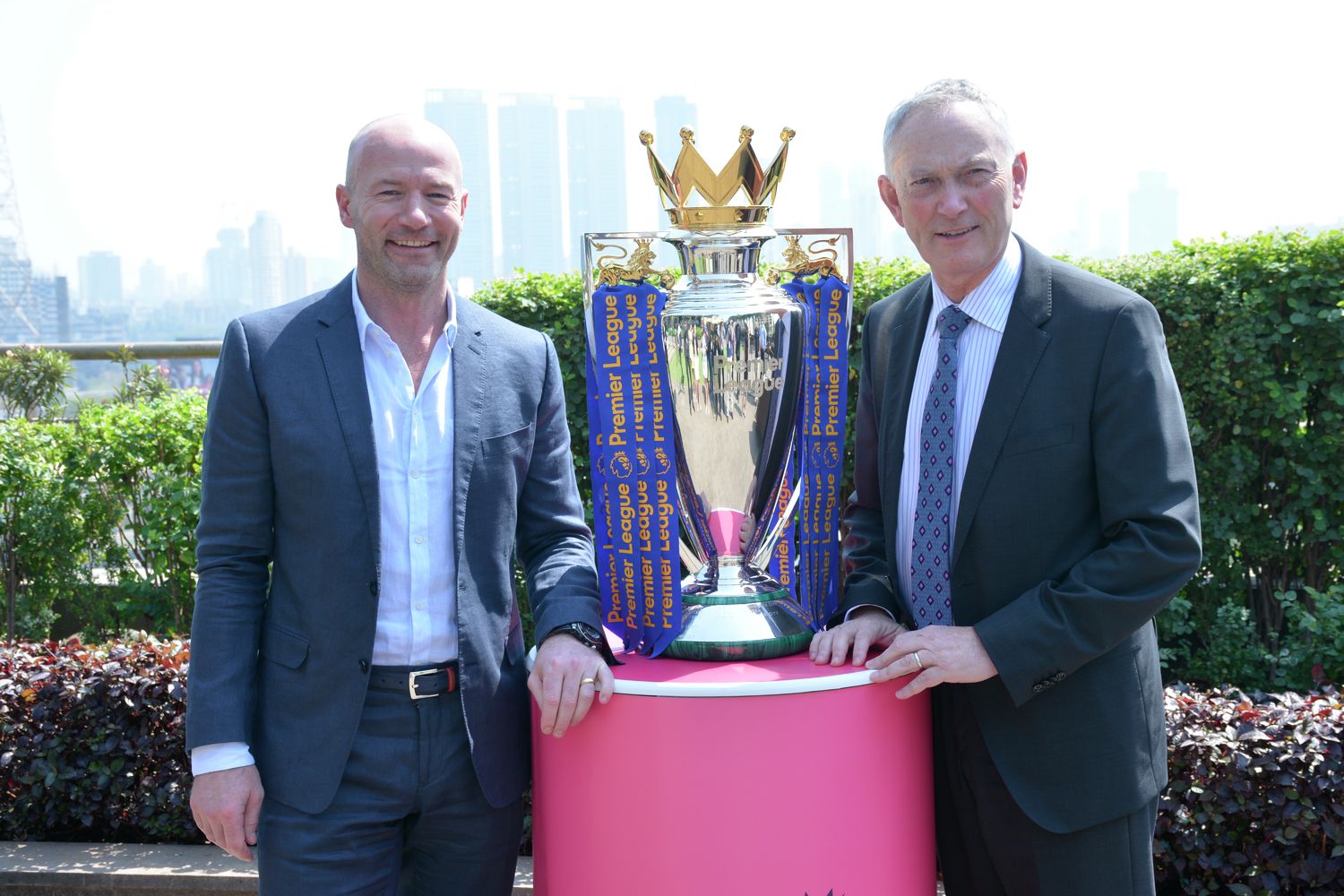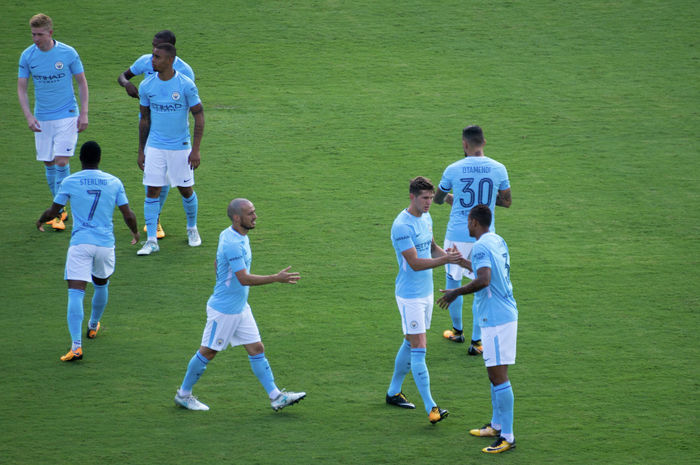I meet Richard Scudamore three and a half years after leaving his job as Premier League CEO. He isn’t quite retired yet, but his occasional consulting gigs are a far cry from his job at the pinnacle of English football. During his time at the Premier League from 1999-2018, he oversaw the league’s biggest period of growth, holding the reins as the league went from strength to strength to become the world’s most popular league, and the one with the biggest domestic TV deal.
I begin by asking him about events that happened after he stepped down, however. Ten months ago, the ‘big six’, a concept Scudamore tells me he disagrees with, tried to break away from domestic football to join the European Super League. In the aftermath of the project’s failure, Scudamore told pundit Gary Neville that the clubs should face strict consequences for their actions. Did they face sufficient repercussions? He thinks so: “They have offered up undertakings, and they’ve offered up some form of penalty and compensation and a financial settlement.
“Most importantly, I think, are their commitments, and they’ve made meaningful commitments to be more collegiate citizens of the Premier League going forward and that’s already manifesting itself. They’ve signed up to all sorts of new rules about the future. I think that’s actually meaningful, it’s positive.”
“I don’t think there should be a subjective test about whether ‘we like the cut of your jib’ or any of those other more subjective analyses [when someone wants to buy a football club]”
His answer strikes me as by-the-book, unsurprisingly, given he was responsible for regulation and legal affairs at the echelons of English football for almost twenty years. Even more by-the-book is his response when I ask whether the Saudi Arabian Public Investment Fund’s recent takeover of Newcastle United should have gone through despite ethical concerns surrounding the Saudi state’s links to the fund. “Leaving aside one’s personal view, you have to start with the Premier League as a UK based organisation,” Scudamore explains. “The UK Government currently actively encourages investment by the Saudi sovereign wealth funds into the UK. I’m not too sure that the Premier League should take any sort of stance that is not, in some ways, consistent with UK law and governance.
“In my interpretation of those rules, it was within the rules for them to allow that takeover to take place. And so on that basis, on those two somewhat more objective bases, I don’t think there was anything particularly wrong with it.”
He won’t budge when pushed on his personal view either: “Because of having been in the job for so long, I still feel like I’m invested with that responsibility to play it rather straight. And to play in the safest place is to keep it in accordance with the rules.” I reframe the question, asking whether the Premier League has a responsibility to safeguard ethical concerns when owners approach the league. He tells me the only responsibility the league has is to assess whether buyers have the appropriate funds to fulfil promises they make to clubs. As for ethics: “I don’t think there should be a subjective test about whether ‘we like the cut of your jib’ or any of those other more subjective analyses.”
“Why is any game moved from Saturday at 3 o’clock? To give it the best possible TV audience because that’s an economic driver”
Criticisms of the modern game often focus on the perceived widening gap between the top and the bottom of football. Google Scudamore himself, for example, and you’ll likely find a slew of articles and angry tweets about his £5m ‘golden handshake’ retirement package, received from top-flight clubs around the time Bury FC were going under. Does he think the gap is widening? “Yes, but I think [the games at the top and the bottom] are very different. I’ve been to Championship and League One games all my life and, believe me, it’s all better. There are more crowds at League One than there used to be,” including at the side Scudamore’s supports, Bristol City.
“What has undoubtedly happened is the game has stretched, but these are different games,” Scudamore points out. Is this a good or bad thing? “Depending which way you look at it, you can argue there’s an inevitability about it. The bigger brands have got bigger, but the smaller brands have also got bigger, but just nothing like by the same stretch.”
Recently, there has been a noticeable spotlight on the position of the average fan in English football, often perceived to be left behind by the TV-centric brand the Premier League has become. Scudamore is relentlessly profit-focused, almost a prerequisite for someone with his old job, and is one of the most staunchly capitalist people I’ve come across. So, I ask him about his stance on the matter, bringing up Friday and Monday night games with no trains back home and ticket prices which can reach £80-90 at the top end.
Does he think fans are treated well? “I can sit here and fully understand the quoting of an individual ticket price. When you take a step back, average ticket prices across the league across every single seat are about £32. I also know that public transport is not ideal in terms of some of the kick-off times. So there are frustrations, and I don’t underestimate those, which is why there aren’t many games on Friday.
“There’s a massive amount [of money] given away. I don’t feel any need to justify the time when I was in position spent maximising [our] own income”
“You can’t be too extreme in these things. Why is any game moved from Saturday at 3 o’clock? To give it the best possible TV audience because that’s an economic driver. All the time I was in post, this money was being reinvested. It’s being invested primarily in playing talent and managing talent, and we’ve attracted the best in the world. And that’s what creates the show. That’s what creates the interest and it’s a trade off for the virtuous circle that is the Premier League. Its success is based on putting on the best possible show.”
In lieu of the gap between the top and the bottom of the game widening, and fans complaining about their treatment, the word ‘greed’ is often thrown around when describing the game’s upper crust. I highlight this, asking if he thinks there’s an element of ‘greed’ in the game. “I try not to react to the word greed, but it’s quite on the offensive end. Lots of people in the world want to maximise the value of things. Most homeowners in the UK like the idea that the value of their home has increased. I don’t call that greed. Now let’s put that in a football context. The Premier League has built a product and it’s incumbent upon the Premier League to sell it for as much as it can.
“When that money comes in, around 80% gets redistributed to the clubs in membership. That money goes, in the main, to attracting the best possible playing talent to keep the whole thing attractive to keep it competitive. The clubs still meet their responsibilities; they give away £500m to the leagues below, charitable donations to good causes, and youth development and community schemes all the way down to the National League. There’s a massive amount given away. I don’t feel any need to justify the time when I was in position spent maximising [our] own income.”
Looking forward, Scudamore thinks the Premier League is the most competitive it’s ever been, and doesn’t see that changing anytime soon. Reflecting on his legacy, steering the league to such a strong competitive position, as well as a financial one, does Scudamore think he’s popular? Does he even care? “Only amongst my children, my wife, and my dogs. You can’t do jobs like this and think about it as a popularity contest. All I know is from the day I got the job, I gave it my best in good faith. Whether I left it in a better place than when I started, that’s for others to judge, not me.”
Does he think he left it in a better place then? “I was happy with my time,” he says, “I left at the point when I wanted to leave on my own terms, but it’s not a popularity contest. There’s an element of being like a politician about the job as well. It’s impossible to be universally popular. It’s not what you set out to do.”
After the interview is wrapped up, Scudamore surprises me by remarking that, for someone who loved the job as much as he did and did it for so long, he hasn’t once missed it. He’s now content with his current life of the odd phone call with his successors and shouting things he wouldn’t dream of shouting in everyday life from the stands at Bristol City’s Ashton Gate.


